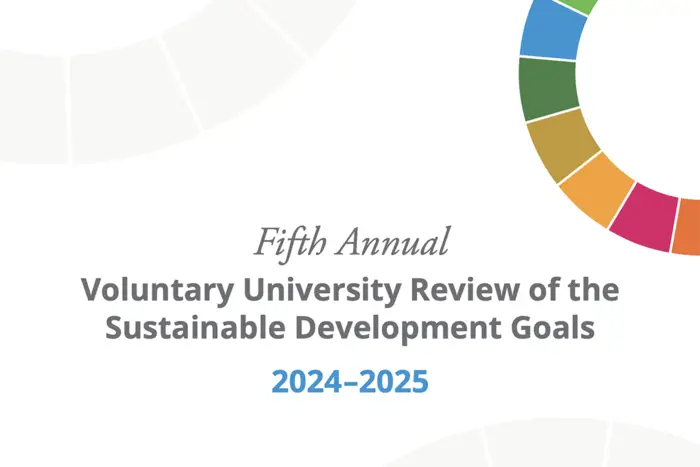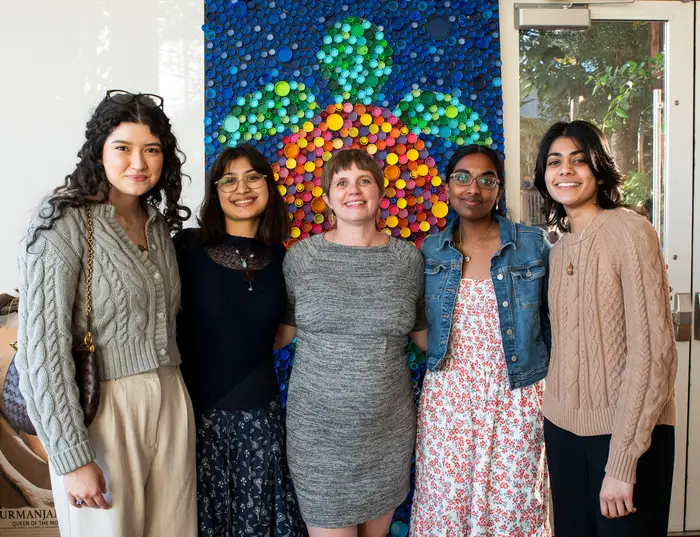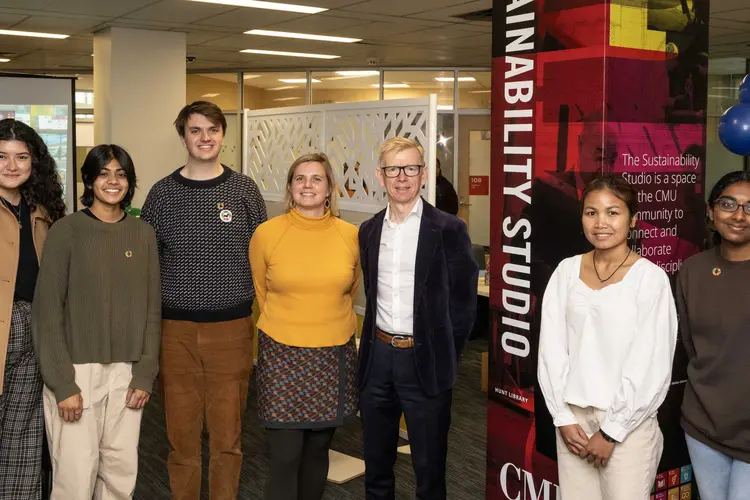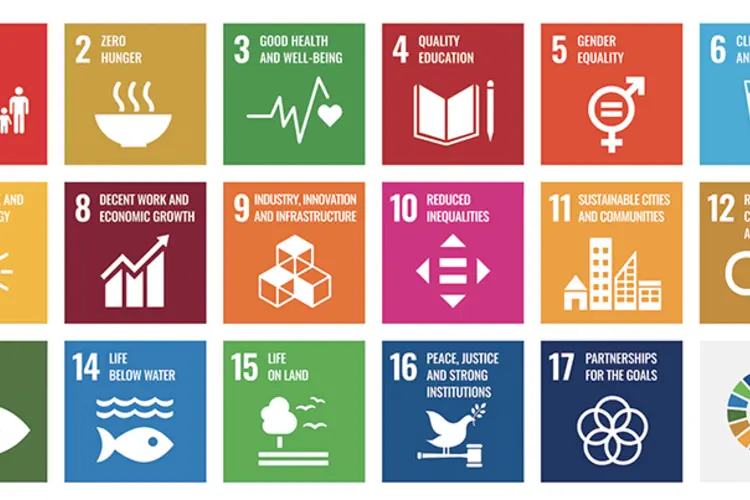
Fifth Voluntary University Review Highlights CMU Engagement, Student Leadership and a Growing Sustainability Network
Carnegie Mellon University's Sustainability Initiative has released its fifth Voluntary University Review(opens in new window) detailing the university's progress in advancing the U.N. Sustainable Development Goals (SDGs). This year’s VUR showcases an evolving vision of sustainability rooted in student leadership, community input and global dialogue.
Designed to create a more sustainable planet by 2030, the SDGS — also known as the Global Goals — are 17 objectives adopted in 2015 by the United Nations General Assembly after input from millions of people around the world. With only five more years to meet this universal agenda, the 2024-25 VUR takes stock of the scope, impact and aspirations of the CMU community’s sustainability efforts, cataloging both successes and areas where more progress can be made.
Alex Hiniker(opens in new window), director of the Sustainability Initiative, began this reflection with a campus-wide survey to assess awareness, engagement and community priorities around sustainability at CMU. This 2024 Sustainability Survey was led by Madison Speck, a postdoctoral fellow with the Office of the Vice Provost for Institutional Effectiveness and Planning(opens in new window), and provided a chance for the CMU community to share their impressions of various sustainability efforts.
The survey gathered insights from over 2,300 students, faculty and staff on the Pittsburgh campus, collecting data about awareness, personal green practices, dashboard use, participation in CMU sustainability efforts and more. It revealed popular sustainability practices on campus, awareness of the Global Goals and areas where the community is not yet largely engaged.
Moving forward, Hiniker will use this data to inform the Sustainability Initiative’s approach to education, research and practices across the university.
“Data only becomes meaningful when we use it to take action,” she said. “We’re using what we learned from the survey to revisit our strategies, update our dashboards, and create even more programming that reflects the lived experiences and interests of our community.”
Partnerships for the goals
Also central to the 2024-25 VUR are the efforts of a talented team of Sustainability Initiative interns. These student leaders not only developed programming, but also expanded the initiative’s reach within and beyond campus.
Each intern held dedicated office hours throughout the week, serving as a resource for Libraries visitors and raising awareness of the Sustainability Studio. Heinz College(opens in new window) of Information Systems and Public Policy(opens in new window) masters student Cristina Goeller created the "Storytelling for Sustainability" series, which took the form of a monthly roundtable that provided a low-stakes environment for open dialogue. Two more events organized with the study abroad staff in the Office of International Education(opens in new window) highlighted the role of global experiences in sustainability education.
Beyond CMU, the interns also developed the Pittsburgh Youth Leaders in Sustainability network(opens in new window) as a way for students across the city to build a community passionate about economic, social and environmental sustainability. Network members participated in events like “Pathways to Impact: Careers in Sustainability(opens in new window)” and “Metamorphosis: A Sustainable Art Gallery and Fashion Showcase(opens in new window)” hosted in partnership with Phipps Conservatory(opens in new window).
“I think this year was the most impactful year of programming from the Sustainability Initiative yet,” said College of Engineering(opens in new window) junior Aleena Siddiqui(opens in new window). “With the 'Storytelling for Sustainability' series, our collaborations with the study abroad office, and growing the Pittsburgh Youth Leaders in Sustainability network, I feel confident in saying that as interns we are learning how to leverage our resources and skills to provide meaningful spaces and programming for the campus community.”
To round out the VUR, the team connected with former interns who have since graduated and moved on to next steps in their lives. Former interns reflected on their achievements within the program and how their time with the Sustainability Initiative equipped them to consider sustainability in their broader careers as they work to bring about real-world change.
“My approach to sustainability is informed by how I want to make change for my community through sustainable development. Learning something new from Alex and the guest speakers at the events helped me determine what that might look like,” explained Phidor Kong, a masters student from Kampot, Cambodia studying public policy and management in Heinz College. Kong, who served as the research intern from 2023–24, graduated this May.
When it comes to next steps, the VUR details the upcoming October release of CMU’s Climate Action Plan, developed under the leadership of Assistant Vice President for Facilities Management and Campus Services and University Engineer Steven Guenther(opens in new window) and informed by a university-wide committee formed through the Sustainability Initiative. This plan outlines the university’s path to achieving net-zero greenhouse gas emissions by 2030.
CMU has long been an innovator in the sustainability space — Provost and Chief Academic Officer James H. Garrett Jr. launched the Sustainability Initiative(opens in new window) in 2019, and it published the world’s first VUR in 2020. With this fifth VUR, Carnegie Mellon not only reflects on its progress but reaffirms its role as a global leader in higher education sustainability.
“This year’s VUR is more than a report — it’s a reflection of the values, ideas, and energy of our community,” Hiniker said. “As we move toward these 2030 goals, we’re committed to turning data into dialogue, and dialogue into action. And as always, student leadership is at the center of this work — driving innovation, shaping strategy, and challenging us to build a more just and sustainable future.”




